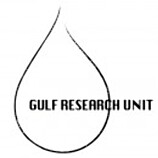
Archive: Gulf Research Blog
Blog articles from 2009 to 2012. The Gulf Research Unit is research programme based at the University of Oslo.
Glancing back at OPEC’s foundation 50 years ago
Denne artikkelen er over ti år gammel og kan inneholde utdatert informasjon.
By: Ingrid Krüger
In the year 1960, in Baghdad, five oil producing nations created the Organization of the Petroleum Exporting Countries (OPEC). As OPEC celebrates its 50th anniversary this year, insightful reviews of its creation should also be celebrated and among them we ought to find the 1982 PhD Dissertation by Terry Lynn Karl.
Karl begins the story of OPEC by introducing us to Pérez Alfonzo, a key political figure in Venezuela who helped enact a new 50/50 profit-sharing agreement with the oil companies operating in Venezuela. When the oil companies threatened with competition from their operations in the Middle East, Karl writes, the Venezuelan government began rallying the support of the Middle Eastern oil producers. Soon after having exchanged information, the 50/50 profit-sharing system was also introduced in Saudi Arabia, Kuwait, and Iraq.
When the Prime Minister of Iran, Mossadegh, attempted to nationalize the Anglo-Iranian Oil Company, however, President Truman feared that other oil producing nations would attempt to do the same and so, Karl writes, the CIA staged a coup backed by the oil companies, replacing Mossadegh. This move, Karl argues, led the other Middle Eastern oil producers to seek protection in numbers, signing agreements of information exchange and cooperation. While Middle Eastern oil producers united, Pérez Alfonzo helped raise the Venezuelan government’s share from the oil companies’ profits even further and informed the Middle Eastern governments about what the Venezuelan government had accomplished. And so finally in 1960 – convinced that they would gain more by standing together – five oil producing governments created the Organization of Petroleum Exporting Countries.
The OPEC members increased the control of oil prices by standing together, rather than simply being observers of oil companies’ price setting. Karl points to how in previous years the oil companies had cut prices without consulting the oil producing nations and thereby severely disrupting their budgets. Pérez Alfonzo argued in one of his interviews with Karl that the Americans blamed them for the higher oil prices instead of seeing what the companies had always done to these oil producing nations. With the 1973 oil boom, OPEC brought about what Karl refers to as “the most radical transfer of economic and political power ever to occur without war”. Rather than studying the effect of this oil-price hike on other governments, Karl asks what the oil boom meant for the oil producing nations themselves, arguing that “great wealth, it appeared, could be a curse as well as a blessing.’’
Although having increased their control of oil prices, the economies of these oil producing nations seemed to be out of control, as Pérez Alfonzo warned Karl of when oil prices were on the rise, “ I call petroleum “the devil’s excrement” .. Look around you .. waste, corruption, consumption, our public services falling apart … The conditions of our lives are not better.’’ By asking what the boom meant for the future development of OPEC-members, Karl inspired many researchers to address the literature on the natural resource curse thesis during the next decades. The 1982 PhD Dissertation by Terry Lynn Karl should be included in the 50th anniversary celebration of OPEC for giving insights to the political processes behind the creation of OPEC and for – only a year after the second oil boom ended – presenting us to the challenges that lay ahead for oil producing nations.
Referanser:
[1] The five founding members were Iran, Iraq, Kuwait, Saudi Arabia, and Venezuela. In addition to these five founding members, the organization today also consists of Algeria, Angola, Ecuador, Libya, Nigeria, Qatar, and the United Arab Emirates.
[2] Karl, T.L. (1982). The Political Economy of Petrodollars: Oil and Democracy in Venezuela. PhD dissertation, Stanford University.






